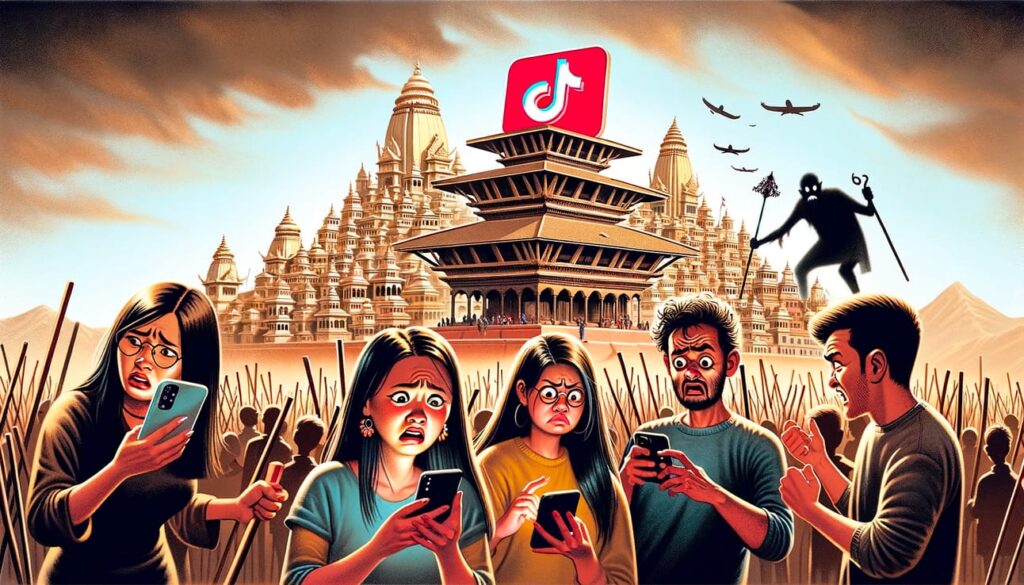Prachanda bans TikTok

Oh, Nepal, you’ve done it again! The government has banned TikTok, claiming it’s disturbing the country’s social harmony. It’s like blaming a spoon for your weight gain – convenient but not quite the root of the problem.
The decision, made as unilaterally as a king in his castle, has sparked a political uproar. Prime Minister Prachanda insists he’s the epitome of inclusivity, claiming the decision was made after consulting all parliamentary parties. But wait, Gagan Thapa from Congress and Rabi Lamichhane from RaSwaPa are calling out this charade, insisting they were as involved in this decision as a vegetarian in a butchery. The lack of transparency here is as clear as mud!
Netizens, as they should, are up in arms. This isn’t just about cutting off their daily dose of viral dances and lip-syncs. TikTok in Nepal is more than just an app; it’s a digital revolution! Nearly 90% of smartphone users in the country are on TikTok, and it’s not just for cat videos. It’s a news source, a livelihood, and a platform for change.
Speaking of change, TikTok has been the backbone of Nepal’s latest political shake-up. It’s the stage where the Rastriya Swatantra Party and independents like Balen have been strutting their stuff.
Banning TikTok? Oh, that’s less about protecting us from questionable content and more about the old guard sweating under the spotlight of new voices. Why the panic, you ask? Let’s peel back the layers. TikTok turned into a megaphone for the unheard, but how? Dive into the Nepali media landscape, and you’ll see the puzzle pieces fit together.
Here’s the deal: Nepal’s traditional media – newspapers and TV – are cozying up with businesses that are buddy-buddy with the big three political parties: Congress, UML, and Maoist. Follow the money trail of these media outlets, and it’s like a road trip through party headquarters. Impartial news? More like a fairy tale when your paycheck’s signed by political godfathers.
This cozy arrangement worked until TikTok crashed the party. Suddenly, alternate views and juicy scandals that traditional media wouldn’t touch started trending on TikTok. It was like flipping the switch on in a dark room – people saw what was hiding in the shadows. Our very own Bibek Pathak had a chinwag with Swarnim Wagle, MP from RSP and it was crystal clear: without TikTok, this political wave would’ve been a mere ripple in a teacup. So really, banning TikTok isn’t about saving society; it’s about saving face for those who fear losing control of the narrative.
It’s a tale as old as time: the establishment clutching at straws, trying to maintain their grip on power by muffling the new generation. In doing so, they’re ensuring the biased media’s profiteering scheme thrives. So, congratulations, Nepal’s government, on your latest performance in the circus of censorship. We’re all eagerly waiting for the next act. Curtain up!
.bh__table_cell { padding: 5px; background-color: #FFFFFF; }
.bh__table_cell p { color: #2D2D2D; font-family: ‘Helvetica’,Arial,sans-serif !important; overflow-wrap: break-word; }
.bh__table_header { padding: 5px; background-color:#F1F1F1; }
.bh__table_header p { color: #2A2A2A; font-family:’Trebuchet MS’,’Lucida Grande’,Tahoma,sans-serif !important; overflow-wrap: break-word; }

Responses